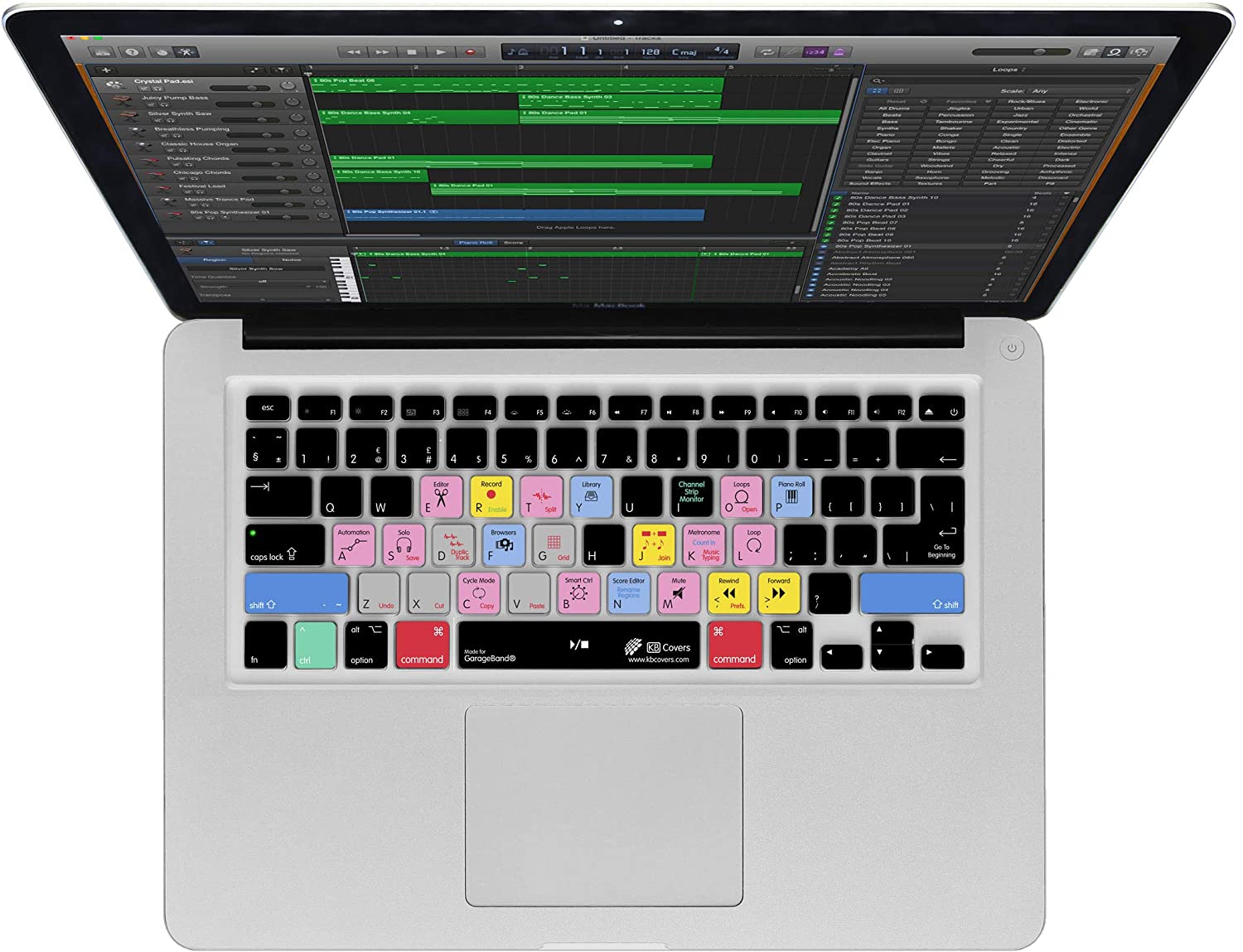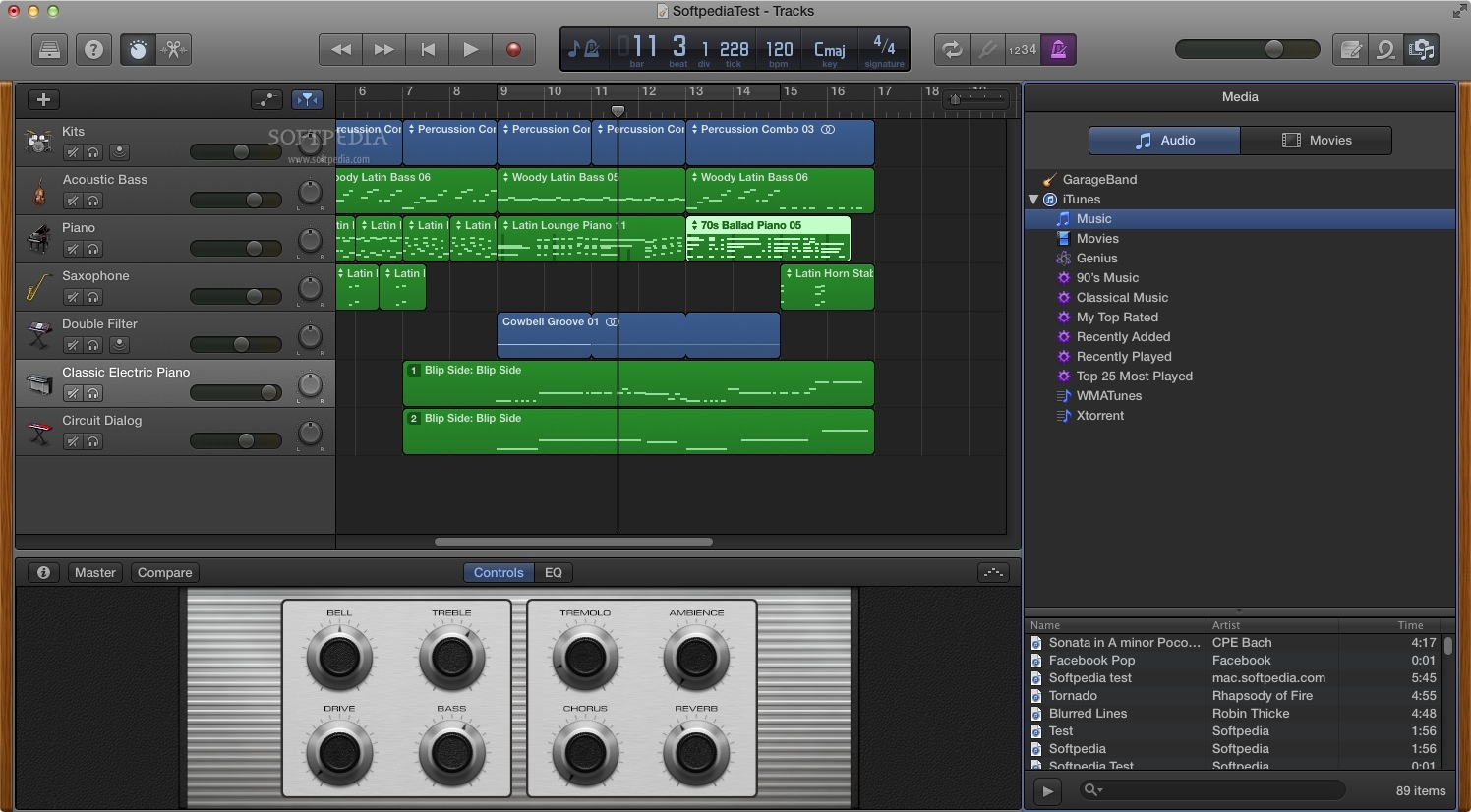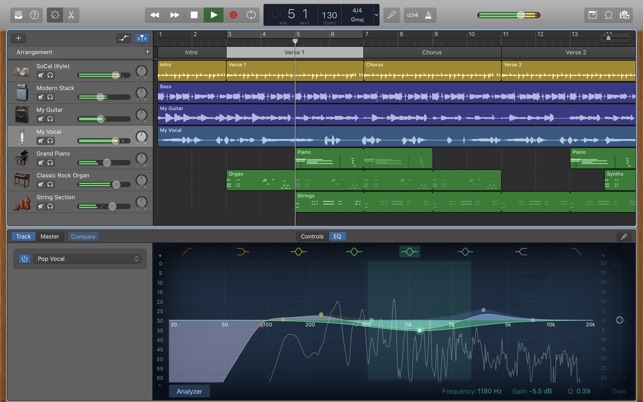
- #GARAGEBAND MAC 10.15 DRIVERS#
- #GARAGEBAND MAC 10.15 UPDATE#
- #GARAGEBAND MAC 10.15 MANUAL#
- #GARAGEBAND MAC 10.15 UPGRADE#
- #GARAGEBAND MAC 10.15 PRO#
Apple now has a long history of inadvertantly breaking hardware when rolling out new versions of Mac OS. It should be pointed out that Apple’s hands were not forced at all into doing any of this. Where it certainly could have done better, I believe anyone who’s bought a 2016 or later laptop from Apple knows maddeningly well. Software development is incredibly complex, and with so many mission-critical systems intertwined and co-dependent, such a scenario is probably idyllic. However, we cannot know for sure if Apple really had the means to do better.
#GARAGEBAND MAC 10.15 UPDATE#
This way, you will be able to restore a working setup without too much of a hassle.Ī systematic, gradual rollout of these drastic changes in place of delivering them all at once in a major update would have made for a smoother transition that’s more considerate of professional users and developers. If you insist on having Catalina at launch, be sure to thoroughly backup your computer with a disk cloning tool, Apple’s own Time Machine software, or even both. In the meantime, you can also dual-boot Catalina and an older macOS/OS X version that’s stable and works for you. It’s clear that you shouldn’t switch to Catalina as your sole operating system until you get the e-mails that your products are officially compatible. xml files – though if something isn’t broken or due for improvement in a meaningful way, why even touch it? What are your options? Reportedly, Apple and DJ software makers are figuring out something better than what was possible with those ancient. xml file to import back into your DJ app, and you are supposed to do this manually each time your music library changes. While iTunes could seamlessly share its music library with other apps, the new Music app has you exporting an.
#GARAGEBAND MAC 10.15 DRIVERS#
The light in the tunnel is that class-compliant devices will continue functioning as normal, unless they require specialized drivers or applications.įinally, Apple is retiring iTunes for the streamlined Music app, which is mostly good news except for Music’s lack of ability to communicate with DJ apps at launch.
#GARAGEBAND MAC 10.15 PRO#
In the pro audio world, new isn’t always better, but it’s guaranteed to be more expensive, so this isn’t a simple case of “get with the times”. Drivers and their installers that are not built for Catalina are completely off limits, so if you own legacy hardware that still works under your version of macOS but is no longer maintained, you are stuck.
#GARAGEBAND MAC 10.15 MANUAL#
While attempting to run “unverified” installers and software that work in Mojave is still possible with a manual override, that’s not the case with device drivers. Enjoy leeching those gigabytes of content from Native Access – I sincerely hope you have speedy internet where you live. In Native’s case, none of its products will be compatible at launch, and the strict security forever breaks the installers for Komplete 8 – 10 on HDDs and DVDs. PreSonus is joined by the likes of Numark, Serato, Slate Digital, and Native Instruments who are also asking users to hold off from updating. Older plug-ins likely won’t load unless they are signed by Apple. PreSonus, for example, announced its Studio One DAW and third-party plug-ins from after Jmust be updated for Catalina and probably won’t work upon launch. Thorough updates are in order to ensure compatibility. Routine file and memory access procedures that happen to mirror common malware behavior either don’t work or require explicit user approval.

The notarization and hardened runtime policies in Catalina break DAWs and plug-ins in weird and unpredictable ways. If you want to run Live under Catalina, you must own version 10. For example, Ableton Live 9 will cease functioning under Catalina and no update will be provided.
#GARAGEBAND MAC 10.15 UPGRADE#
Whether the current software version you own will be migrated to full 64-bit, or a new paid upgrade will be issued instead is entirely up to the developer.


This stuff breaks music software and other “pro” apps in one or more of the following ways:Īpplications that still employ 32-bit software components due to legacy compatibility, developer laziness or whatever reason have to be updated to full-on 64-bit code before they are compatible with macOS Catalina. It’s more of a combination of abandoning 32-bit code altogether, even stricter app runtime and installer notarization practices, a complete refusal to accept unverified drivers, and the yet unanswered question of how DJs will integrate their iTunes library with DJ software once iTunes gets the axe. It’s no ill will, it’s the ills of modern computing.Īn exact culprit is difficult to pinpoint. Coming this October, macOS Catalina will break most, if not all of your music apps and equipment upon launch while doubling down on those annoying security prompts that seem to question every step of your workflow. Two years ago, macOS High Sierra brought perfectly healthy Macs to a crawl, sparking outrage.


 0 kommentar(er)
0 kommentar(er)
